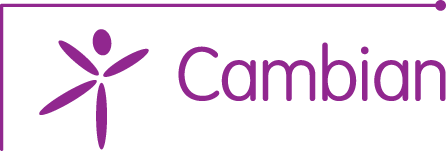Dyspraxia is a condition that affects mainly movement - gross and fine motor skills but also any or all of the areas of age-appropriate developments such as language skills, social skills, sensory, emotional skills and perception. Problems appear in forming ideas, motor planning and execution but each individual is affected differently and to different degrees. There is no known cause and it is estimated that up to 10% of children may have dyspraxia (with 2% being significantly affected) and boys affected four times more frequently than girls.
It is also known as a development co-ordination disorder (DCD), motor learning difficulty, 'clumsy child syndrome' and perceptuo-motor dysfunction. Where the condition co-exists with ADHD, it is called DAMP or Deficits in Attention Motor Control and Perception.
Parents or carers may notice the problems early on. Their child may have trouble with some of the following:
• balance and co-ordination
• developmental milestones
• self esteem
• clumsiness
• eye control
• limited play choices
• isolation from peers
Fine motor skills may be affected, such as:
• doing up buttons and tying up shoelaces
• picking up small objects
• writing, colouring or painting
Gross-motor skills, for instance:
• sitting, crawling, walking
• hopping, jumping
• riding a bicycle
• PE, ball games
Dyspraxia can also cause problems with the following:
• specific learning difficulties, partiucularly spelling, reversals, sequencing
• jigsaws and sorting
• poor social skills
• behaviour
• attention and task maintenance
• personal organisation
• coping with change in routine
There might also be some speech and language or pronounciation difficulties caused by problems co-ordinating the various movements of the mouth and tongue. Children with dyspraxia need considerable support from adults.
Diagnosis
If the child is at pre-school level then speak to a GP or Health Visitor and nursery staff, for a school age child speak to the teacher or the school special needs co-ordinator, the school nurse, school doctor or GP. These people can make referrals to appropriate services with the area for assessment, for example, to a paediatrician, hospital or community based therapy team, educational psychologists. Child development teams make assessments to determine the child's needs and provide appropriate advice and/or therapy. Another option is an assessment by a private Occupational Therapist.
Help at Home
Getting dressed:
• velcro on shoes, not laces or buckles
• lay out clothes in dressing order
• loose clothing
• avoid tie
• larger holes and buttons
• elasticated trousers and skirts
• clothes with a distinctive front and back, e.g. a v neck sweater, pleated trousers
Eating:
• use flexible straws
• don't fill cups too full
• non-slide mat for plate
• curved knives and forks
Getting organised:
• keep to a daily routine
• use timetables
• use post-its as reminders
• everything in a specific place
• cupboards and drawers labelled
Motor skills:
• put aside time to practice handwriting
• buy fun toys that help improve holding, placing, spatial awareness, etc.
• play throwing and catching games
• encourage balancing on logs, walking on flower pots
• learn to learn ride a bike/trike
Help at School
• reduce distractions in the classroom; keep desk clutter to a minimum
• make a personal timetable and encourage use of a diary up upcoming events, homework dates, any
extra equipment needed
• give responsibilties/tasks which should involve others; encourage teamwork and make sure other
children offer support especially in PE
• encourage interaction with other pupils, by helping find and develop common interests such as music, tv, etc
• make sure that tables and chairs are at the right height and seating posture is correct, with feet on the ground. Note that sitting cross legged on the floor may be uncomfortable
• an angled board for writing and reading books may be beneficial
• present small amounts of work at a time, set out tasks point by point, use tick boxes to aid completion of tasks, allow extra time and repetition
• allowing copying from paper next to them rather than a whiteboard
• encourage different methods of recording apart from writing
• use a line guide/ruler to aid easier reading
• in PE, give time to practice skills needed
• offer lots of public praise at the appropriate time
• always pick good points from the child's work
Depending on the degree of severity, a child with dyspraxia may also benefit from regular interventions from some of the following:
(Educational) Psychologist if a child's difficulties are severe enough to require considerable in and out of school support, a full psychological assessment should be requested. When completed, this may lead to a Education, Health & Care Plan, read more about that here.
Occupational Therapists can assess and diagnose dyspraxia and offer a range of interventions to help alleviate the problems. Some of the most commonly used approached include Sensory Integration Treatment and perceptual-motor training. This usually happens in a clinical environment, with OTs trained in Sensory Integration, where the child is given the opportunity to explore and interact with a sensory rich environment.
Physiotherapists help with gross motor skills, posture and general body image and management.
Speech Therapists can help young people who have speech and articulation difficulties.
Be aware that treatments from too many therapists may result in the child missing a great deal of school, creating its own set of problems.
Specialist Teachers can support children within a mainstream setting to follow specific programmes and get advice to those working with them.
If you would like some advice or more information on our services and what we can do for you, contact us here, or call 0161 507 3723 to discuss a referral in confidence.
For general enquiries, please contact us here.

